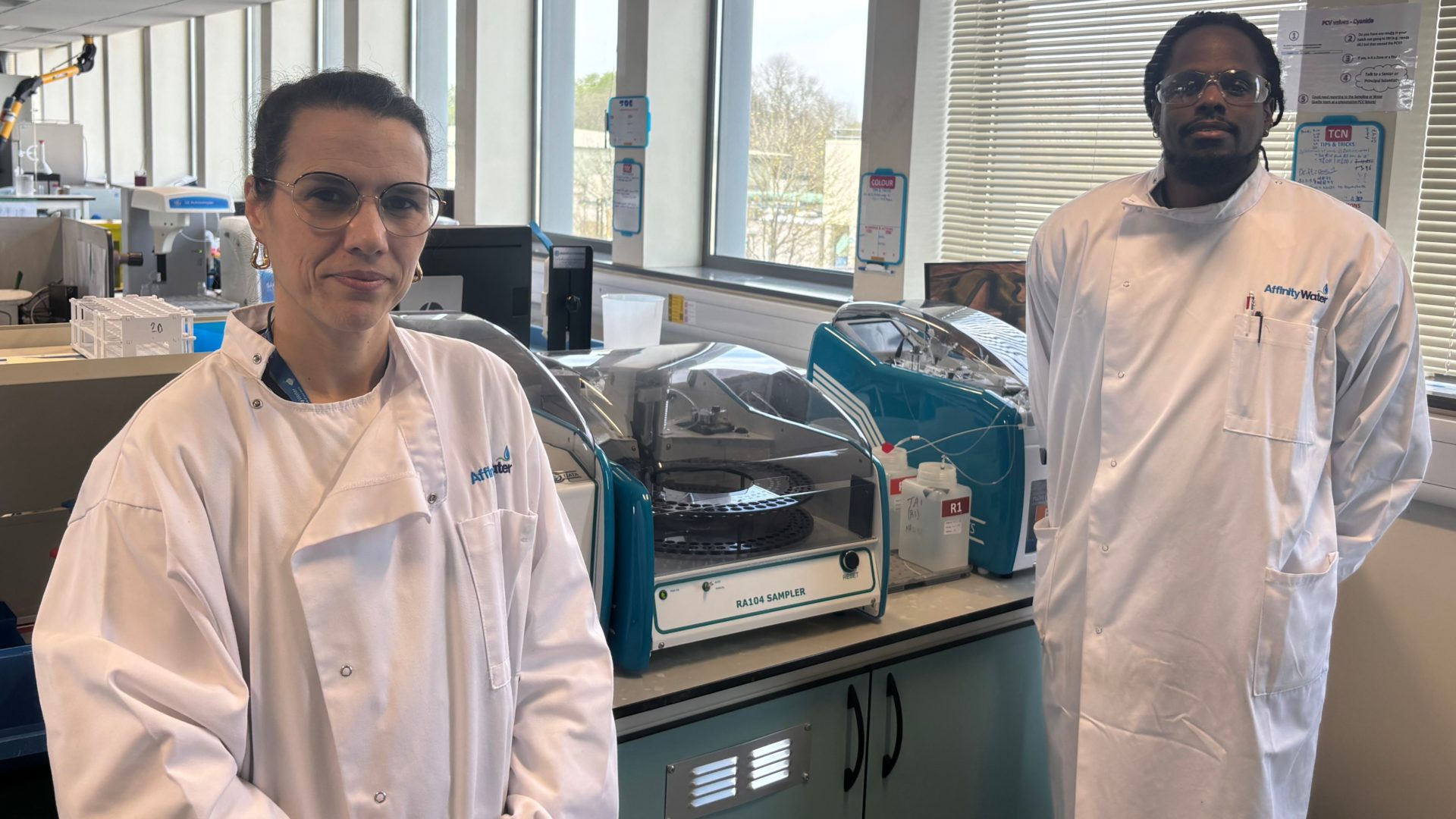Affinity Water has become the first water laboratory in the UK to develop and establish an advanced method for detecting total cyanide in drinking water, which has now been officially published as a standalone “Blue Book” by the Standing Committee of Analysts (SCA).
The company said this achievement highlights its leadership in water quality innovation and its commitment to maintaining the highest standards of drinking water safety.
The SCA, managed by the Environment Agency, sets the benchmark for water analysis in the UK. Its internationally recognised “Blue Books” provide official methodologies for sampling and testing drinking water, groundwater, rivers, and wastewater. These standards are widely used across the industry to ensure regulatory compliance, safeguard public health, and protect the environment.
Affinity Water’s newly recognised method for total cyanide analysis represents a significant step forward in water testing, reinforcing the importance of rigorous scientific processes in ensuring the safety of public water supplies.

Driving innovation in water testing
The methodology was authored by Ana Rodrigues, Principal Scientist – Chemistry at Affinity Water, who collaborated closely with the SCA working group to secure its publication. Supporting the research, Senior Scientist Makinwa Kubweza played a crucial role in developing and validating the technique, ensuring it met strict performance criteria in accordance with ISO17025 Drinking Water Testing Specifications (DWTS).
Chris Underwood, Laboratory Technical Manager at Affinity Water commented:
“This recognition from the SCA highlights the dedication and expertise within Affinity Water’s Scientific Services team. By pioneering new testing techniques, the company is setting new benchmarks for water quality monitoring and strengthening the safeguards that protect public health.
“Our commitment to scientific innovation ensures that we stay ahead of emerging challenges in water quality analysis, providing our customers with the confidence that their drinking water is rigorously tested and meets the highest standards. This achievement is a testament to the hard work of our scientists, whose expertise continues to drive advancements in the industry.”
Advancing water quality for the future
Affinity Water said the achievement in securing this recognition reflects its ongoing investment in scientific research and technological advancement. By continuously improving the methods used to analyse water quality, the company is playing a key role in shaping the future of water testing in the UK.
This milestone not only showcases Affinity Water’s expertise but also reassures customers that they are receiving the highest-quality drinking water, underpinned by industry-leading scientific standards.
What is total cyanide in drinking water?
Total cyanide refers to all forms of cyanide present in water, including free cyanide (such as hydrogen cyanide and cyanide ions) and cyanide compounds bound to metals. While cyanide is most commonly associated with industrial processes, it can also occur naturally in certain environments.
In drinking water, cyanide levels are tightly regulated to ensure safety. The UK’s Drinking Water Inspectorate (DWI) and the World Health Organization (WHO) have strict guidelines on acceptable limits, ensuring that cyanide levels remain well below any harmful threshold.
While cyanide in drinking water is not a widespread concern in the UK, Affinity Water’s innovative testing method helps strengthen water safety and reassures customers that their water remains of the highest quality.



